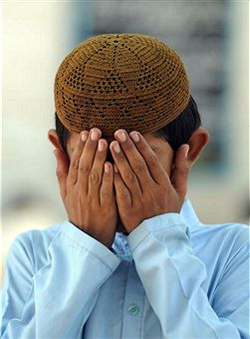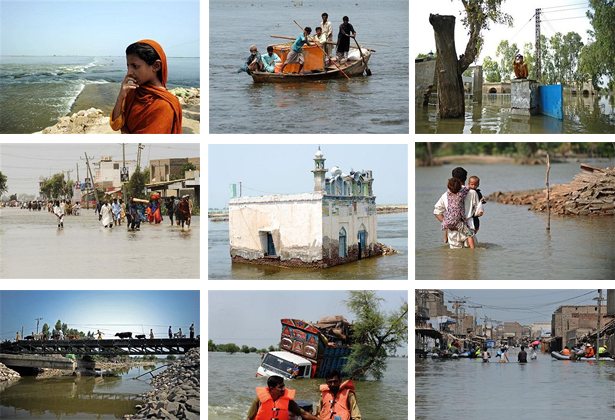Mar 05, 2026
Mar 05, 2026
 The flood waters of the Indus finally poured into the Arabian Sea on 01 September after devastating the country for over five weeks, submerging almost one-fifth of land mass and making hundreds and thousands homeless. Eight million people are now aid dependent as their agricultural produce is washed away or land silted. The death toll from floods, which have officially claimed over 1,600 lives, is likely to rise as the missing are counted as the waters recede. The first wave of floods started on 29 July triggered by heavy monsoon rains in north-west Pakistan which caused rivers to burst banks and destroyed entire villages. By 31 July UN described the monsoon floods as the worst in living memory. These unprecedented floods also have the potential to create a triple crisis in Pakistan, relief and rehabilitation, political fissures and violence.
The flood waters of the Indus finally poured into the Arabian Sea on 01 September after devastating the country for over five weeks, submerging almost one-fifth of land mass and making hundreds and thousands homeless. Eight million people are now aid dependent as their agricultural produce is washed away or land silted. The death toll from floods, which have officially claimed over 1,600 lives, is likely to rise as the missing are counted as the waters recede. The first wave of floods started on 29 July triggered by heavy monsoon rains in north-west Pakistan which caused rivers to burst banks and destroyed entire villages. By 31 July UN described the monsoon floods as the worst in living memory. These unprecedented floods also have the potential to create a triple crisis in Pakistan, relief and rehabilitation, political fissures and violence. 
04-Sep-2010
More by : Col. Rahul K. Bhonsle